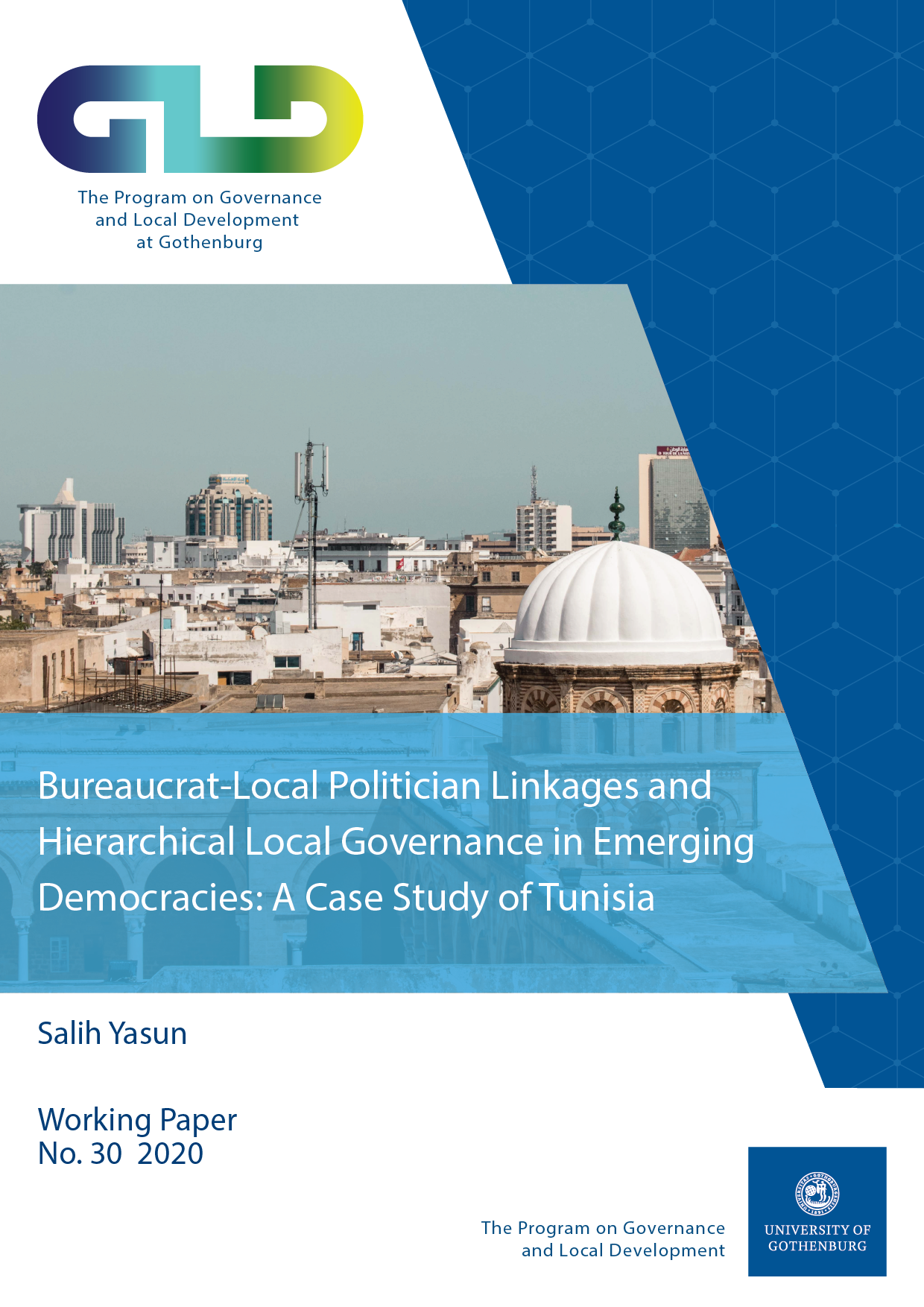No.30 Bureaucrat-Local Politician Linkages and Hierarchical Local Governance in Emerging Democracies: A Case Study of Tunisia
Salih Yasun
Abstract
Despite implementing comprehensive decentralization laws, emerging democracies often achieve limited success in improving the inclusiveness of local governance. A potential factor limiting the inclusiveness is the lack of cooperation. What factors determine the inclination of mayors to cooperate, and what are their implications for transparency? Yasun answers these questions by conducting a case study of Tunisia, where mass resignations paralyze the local governance following the implementation of the Code of Local Collectives in 2018. He evaluates the mechanisms that produce divergent inclinations to cooperate based on a set of interview data recently collected among 39 municipalities in socio-economically divergent regions with mayors, city council members, civil society members, and a governor. Yasun further examines their implications for transparency based on a Transparency Index developed by an independent organization for all 350 municipalities. The findings from interviews suggest that partisanship ties constitute the most substantive factor perpetuating hierarchical relations among the elected officials and the appointed bureaucrats, as they can enable mayors to focus on large scale projects at the expense of cooperative modes of governance. A mixed effect analysis on the Transparency Index of municipalities within governorates with identified partisanship ties (n=174) indicates that the transparency score is lower in instances where the mayors and the governors belong to the same ideological family.
